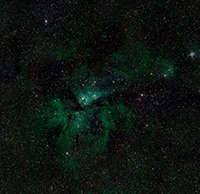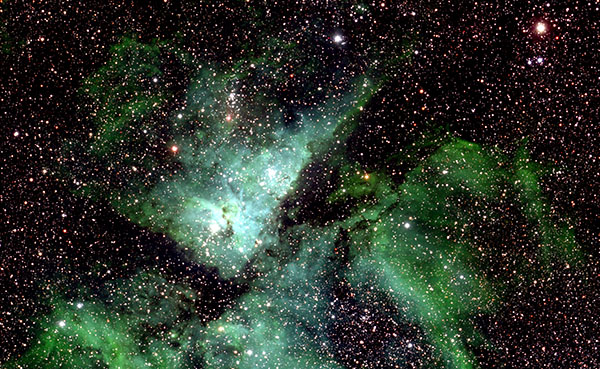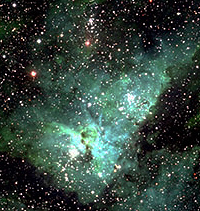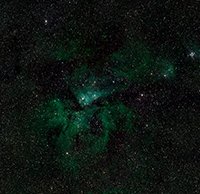Explore the Milky Way in all its beauty with this record-breaking 46 gigapixel space panorama
posted Monday, November 2, 2015 at 4:27 PM EDT

Thanks to the astronomers at the Ruhr-Universitat Bochum in Germany, you can now view a 46-billion pixel image of the Milky Way. This massive new image is currently the largest image of space ever created!
The image, which was created using 268 separate sections, each of which was captured over the course of several days, is equivalent to taking 2,000 images of the Milky Way with a 20-megapixel camera. Or, put in similarly staggering terms, to view this entire image at 1:1 resolution, you would need 22,000 separate 1080p high-definition displays. The survey was conducted by PhD candidate Moritz Hackstein. Hackstein and professors at the Ruhr-Universitat Bochum worked together to create the visualization tool, which even allows for you to search for and view a specific star.

In addition to being the largest image captured of space, the massive image also contains 50,000 newly-discovered variable brightness objects. Variable brightness stars are stars whose brightness fluctuates as seen from Earth. Hackstein and his team have been capturing images of the Milky Way for the past five years for their project using telescopes at the university's observatory in Chile's Atacama Desert. Chile may be a long trip from Germany, but it is the home of many of earth's most powerful observatories. The southern sky contains the center of the galaxy and despite the news-making recent rains in the Atacama Desert, the average annual rainfall at its 5000-meter elevation is less than 100mm. The dry, clear air and high elevation make it an excellent location to observe stars from Earth's surface through the clearest possible skies.

Readers, explore the massive image and let us know what you think in the comments below! For additional information, see the press release from Ruhr-Universitat Bochum.
(Seen via CBS News)
